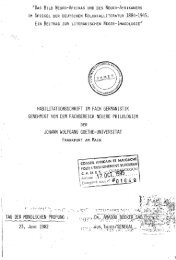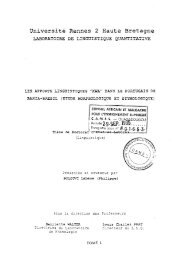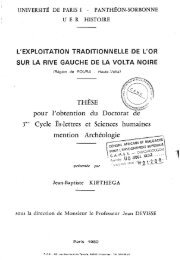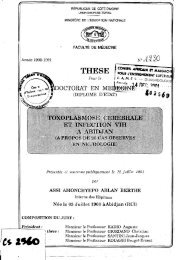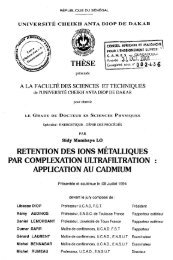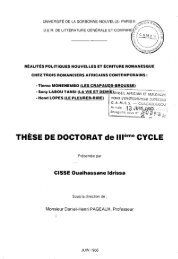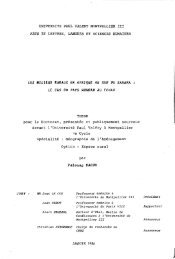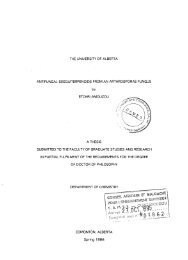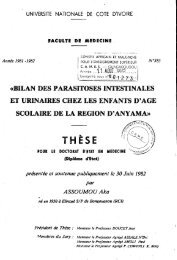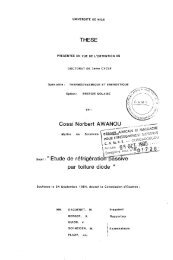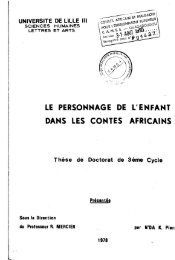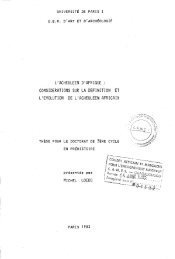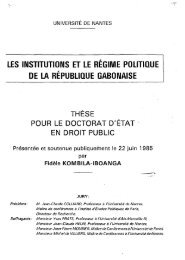UNIVERSITE DES SCIENCES HUMAINES DE STRASBOURG
UNIVERSITE DES SCIENCES HUMAINES DE STRASBOURG
UNIVERSITE DES SCIENCES HUMAINES DE STRASBOURG
You also want an ePaper? Increase the reach of your titles
YUMPU automatically turns print PDFs into web optimized ePapers that Google loves.
6<br />
Summary<br />
The scientific revolution of the 16 t h and<br />
17 t h centuries having been initiated by Galilee,<br />
developped by Descartes and synthesized by Newton made us<br />
realize that nature is mechanistic, simple, determinist<br />
and reversible. Nature of modern science was a dead,<br />
passive one a robotic nature whose essential<br />
characteristic was that of laws accessible to man a<br />
nature ".-There men ".-Tere to become "masters and owners" in<br />
order to give life to both the baconian and cartesian<br />
expr e s sion. However this is commonly accepted. Wha t is<br />
certainly far from the truth is that this "edifice" of<br />
modern science has suffered and is suffering from cracks<br />
d e c ay . The principles upon which mcder n inteJ,.ligibility<br />
of nature was SEï: are influenced by the development of<br />
objective knowledge. Contemporary knowledge is not only<br />
taking backward steps as regards the principal concepts<br />
of the interpretation of nature by modern science, but<br />
also appears to put into question the secret stimulus,<br />
Prometheus desire which has always animated modern<br />
science, the cult of increasing domination over things.



